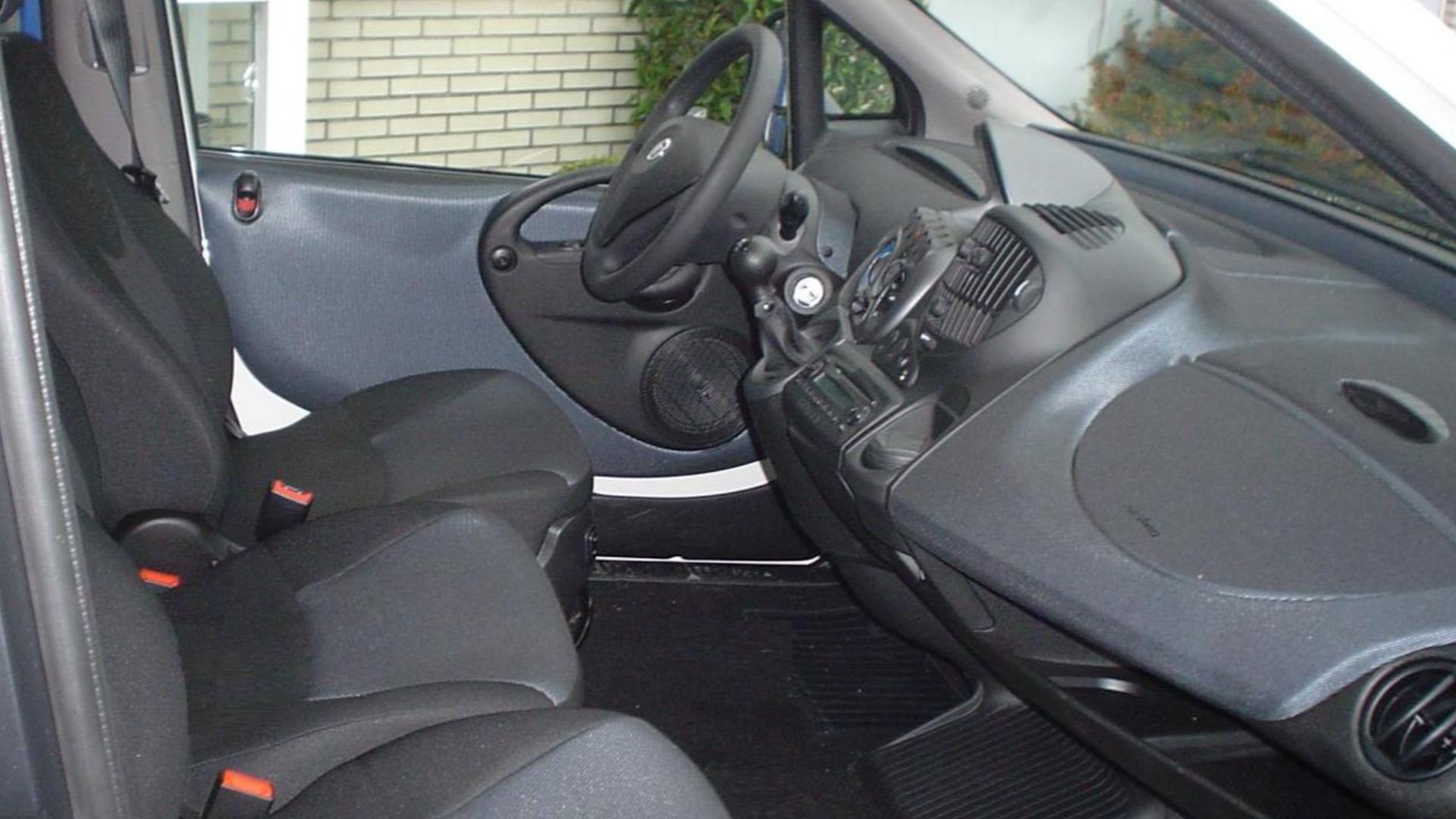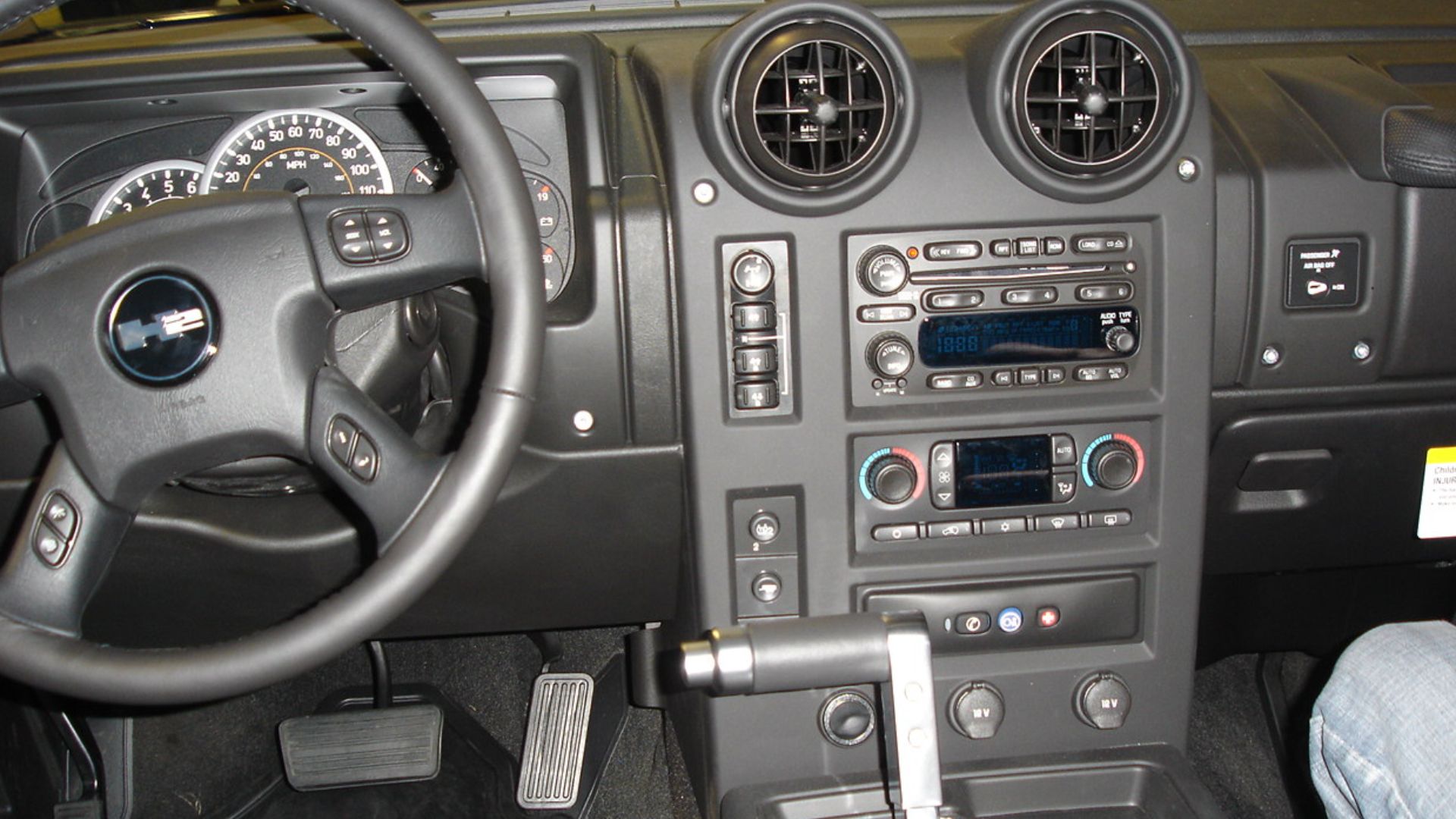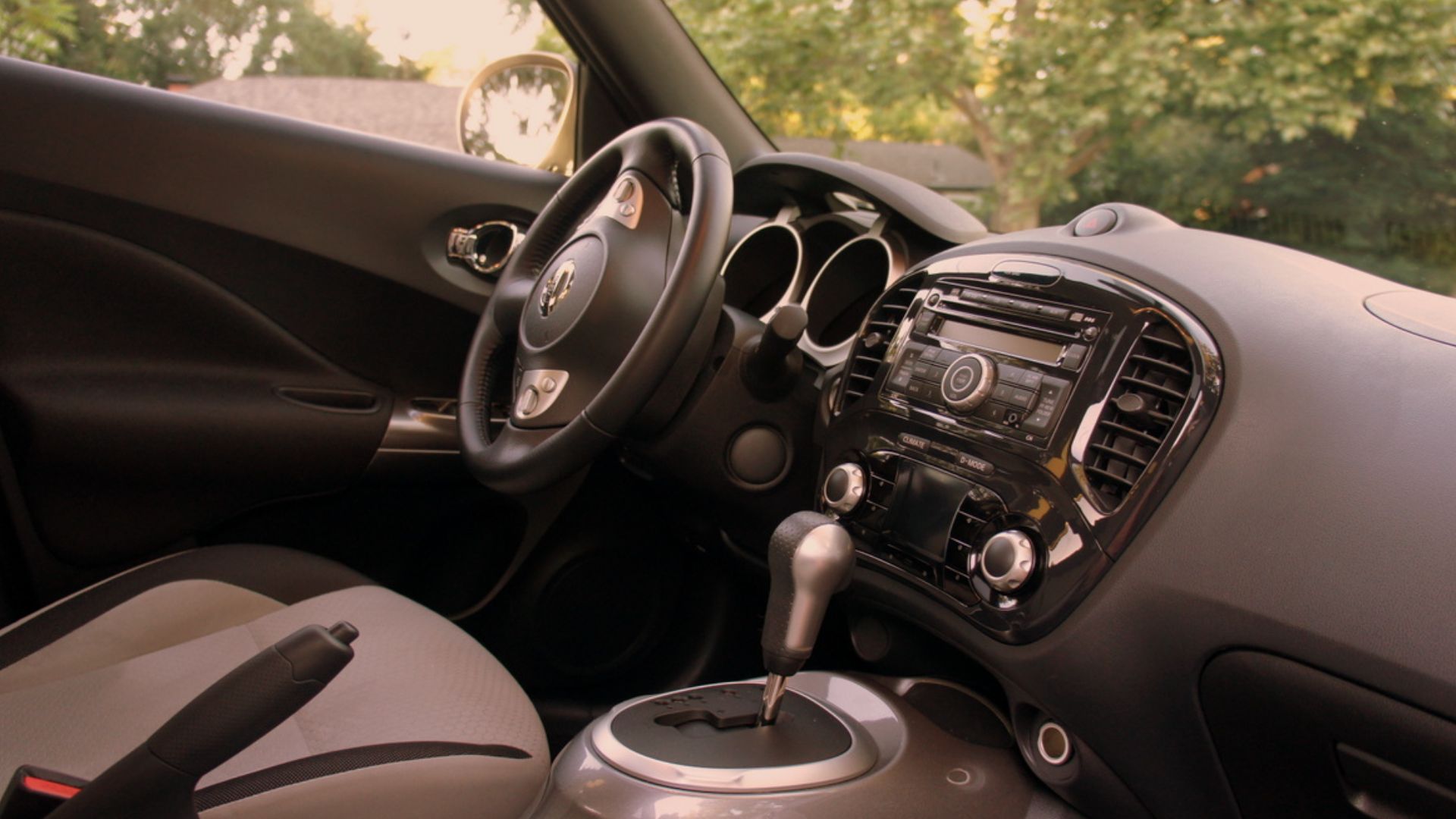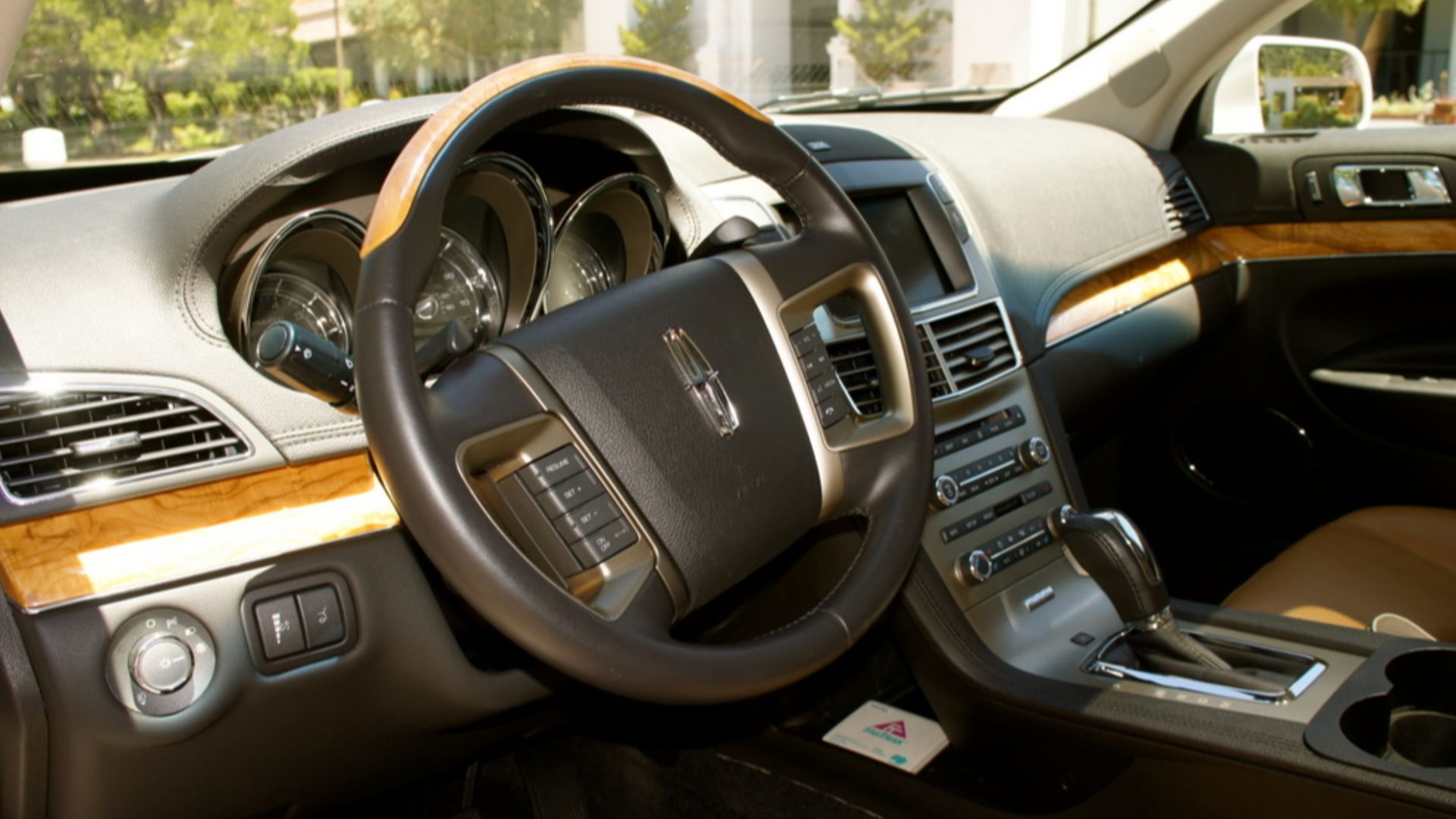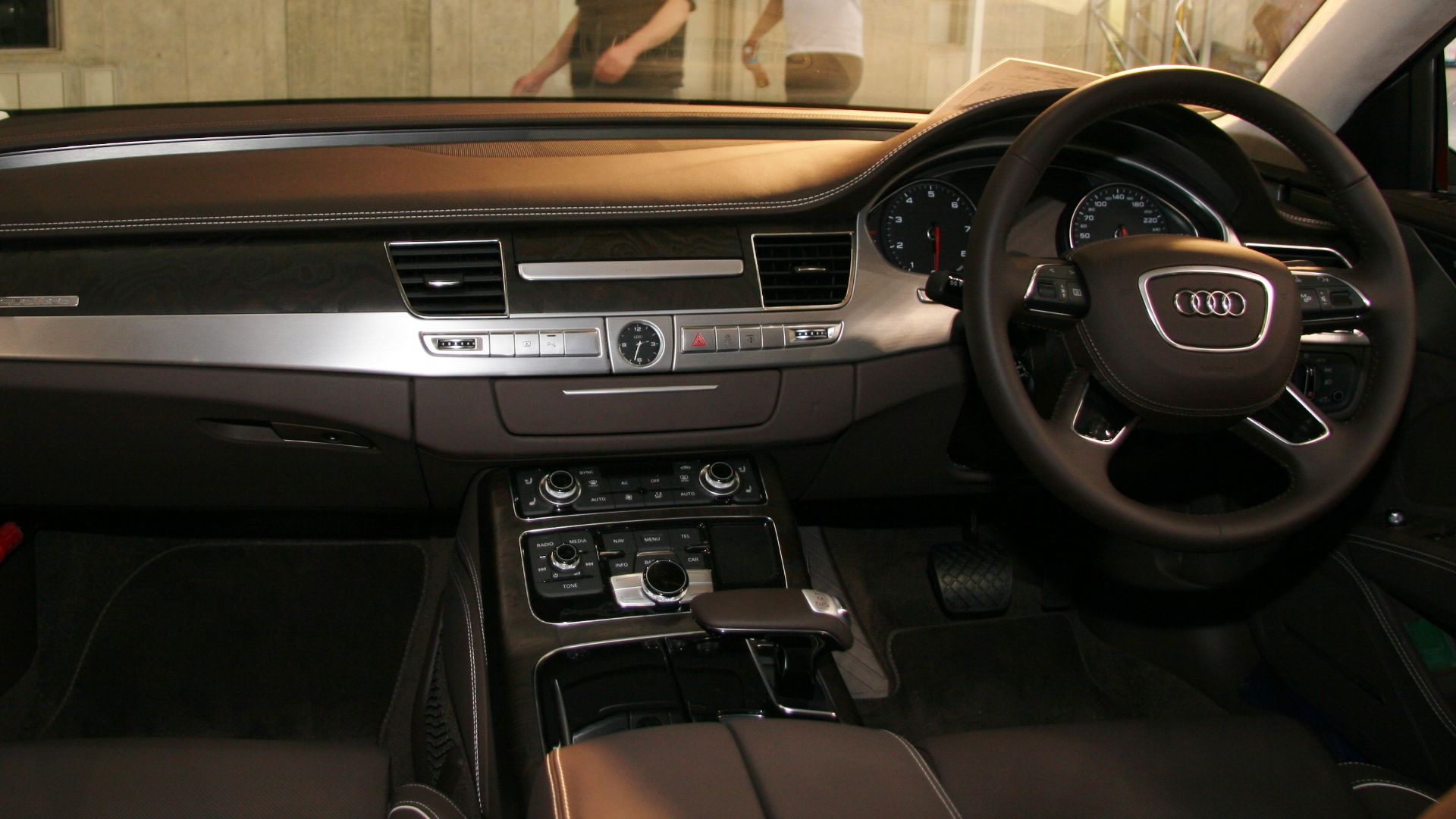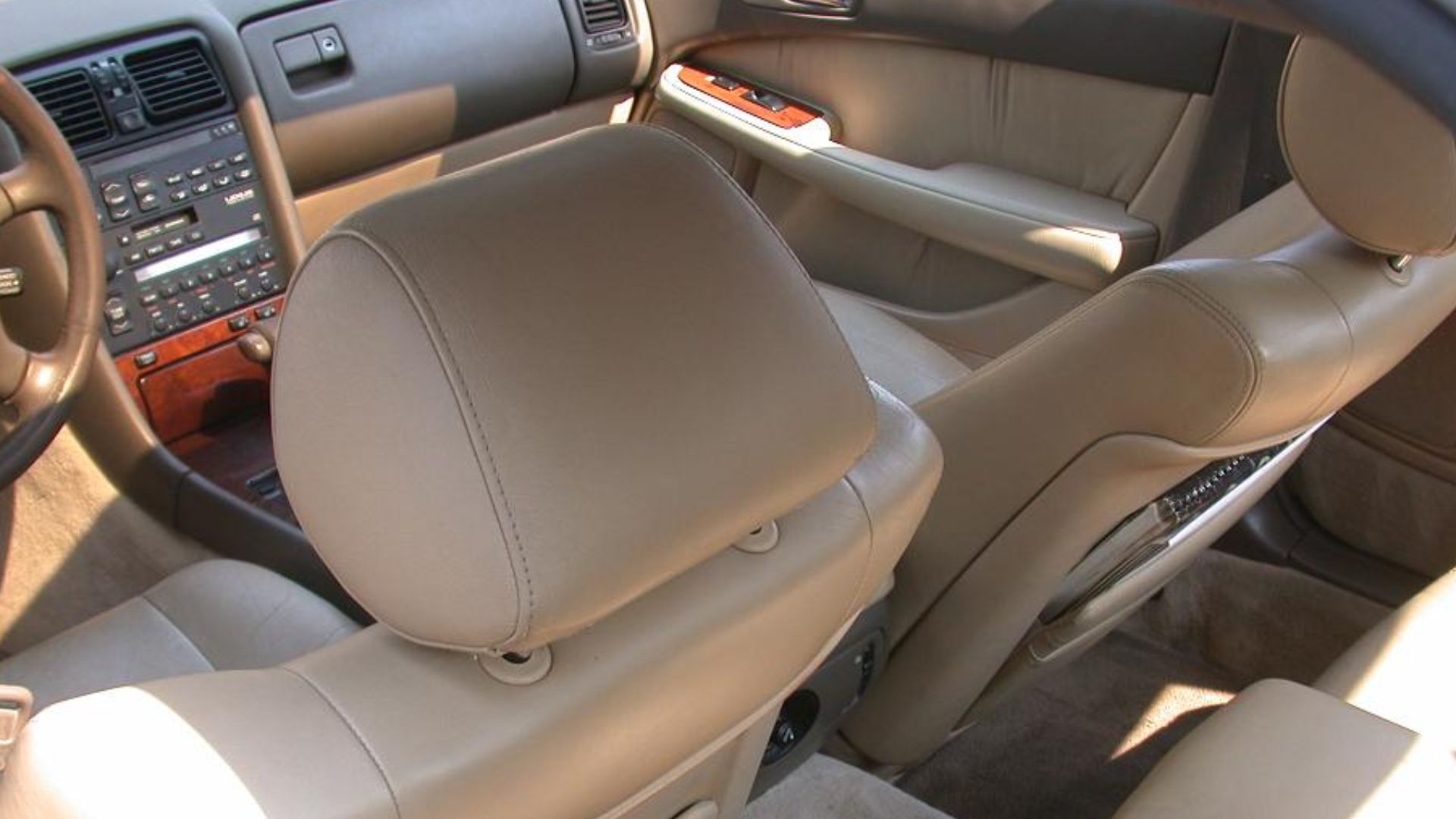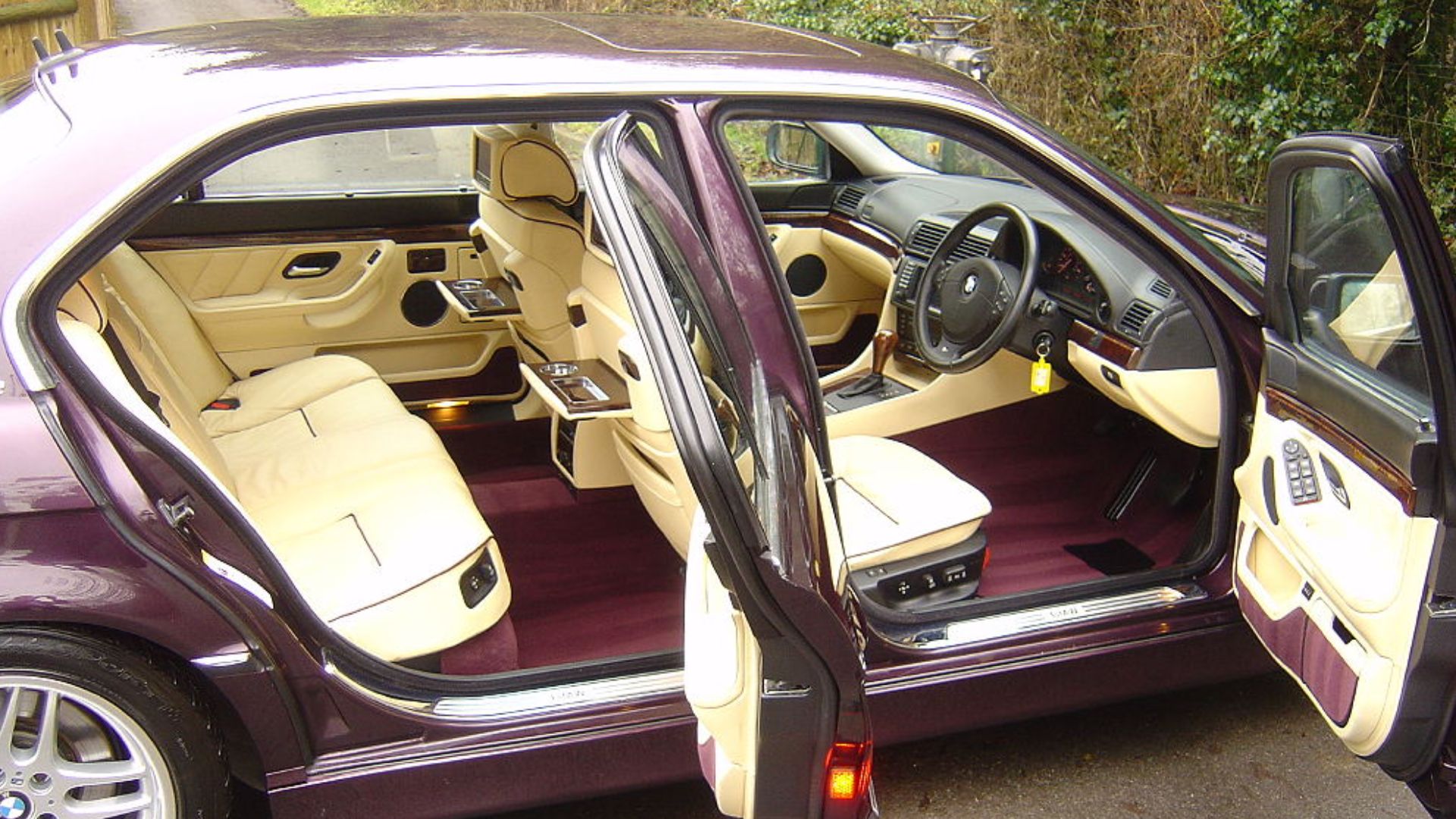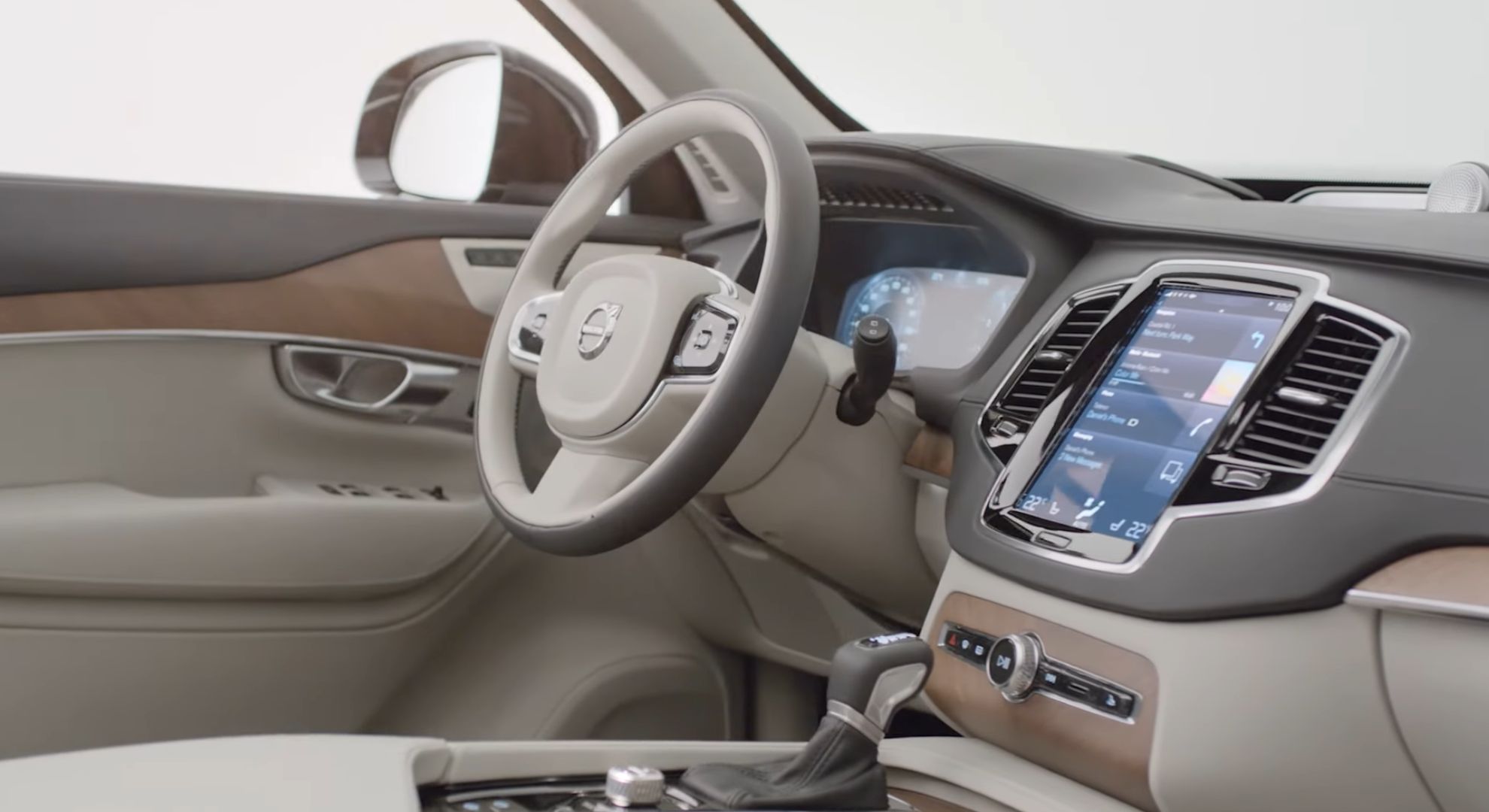It's What's On The Inside That Counts
Car enthusiasts love flaunting what’s under the hood, but let’s face it: You spend most of your time inside the car, not the engine. And that’s where it gets personal. Some interiors strike the perfect balance of form and function, while others leave you questioning the designer’s sanity. Let’s count down 10 of the ugliest interiors and 10 that got it right.
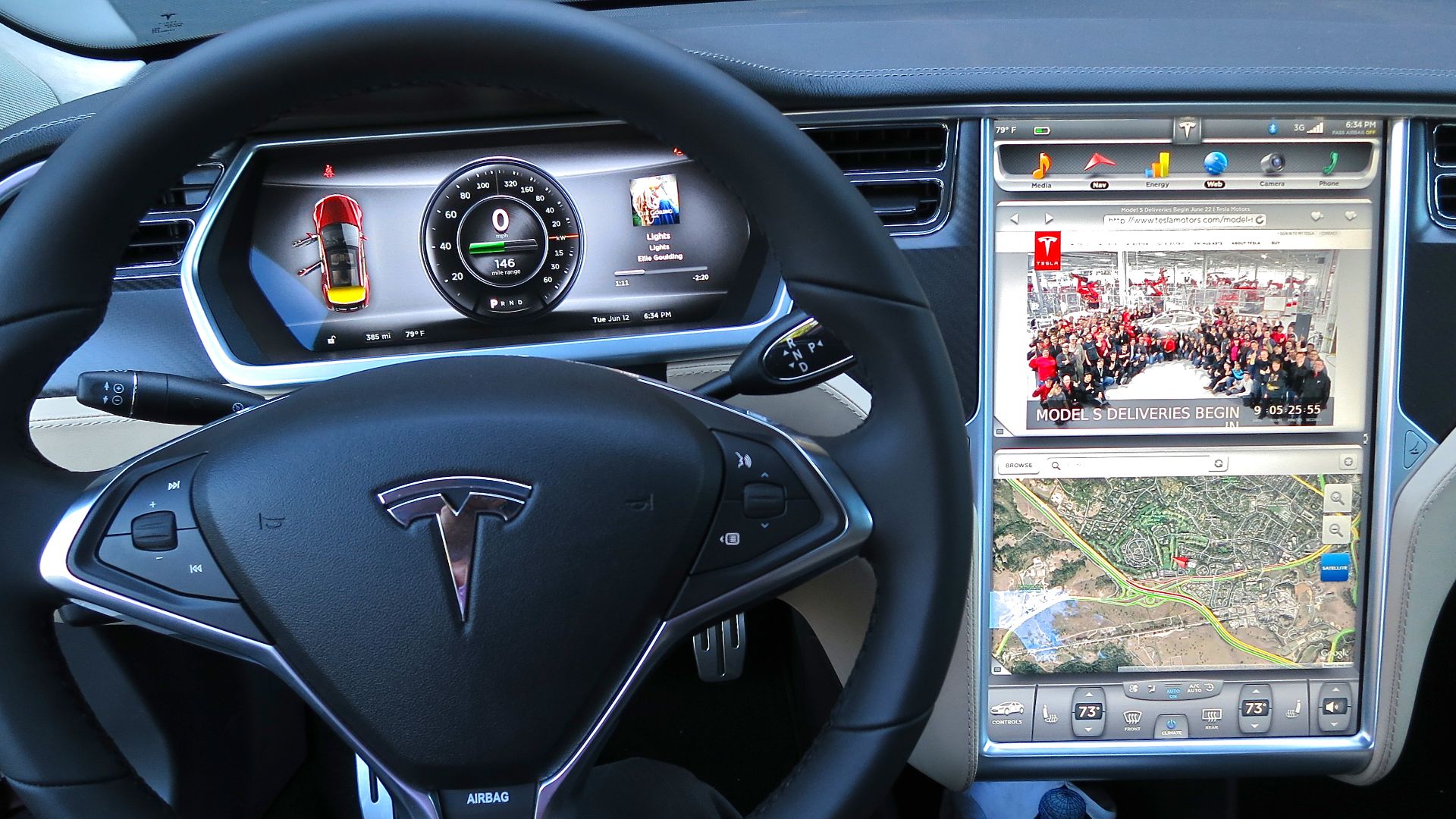 jurvetson (Steve Jurvetson) on Wikimedia
jurvetson (Steve Jurvetson) on Wikimedia
1. Pontiac Aztek (2001–2005)
The Aztek’s cabin felt like a failed science project, with brittle plastic and clunky switches everywhere. Ergonomics were poor, colors clashed, and the center console looked more like a retro cooler than a functional part of the interior. Even if you tried, it was impossible to escape the design missteps.
 2001 Pontiac Aztek Review - You Would Have Loved This… by Shooting Cars
2001 Pontiac Aztek Review - You Would Have Loved This… by Shooting Cars
2. Fiat Multipla (1998–2010)
One glance inside the Multipla, and you’ll swear it was designed during a power outage. The three-seat layout up front was confusing, and the center-mounted gauge pod atop an inflamed dashboard was jarring. Nothing about it invited confidence or comfort.
3. Chrysler Sebring (2007–2010)
Every inch inside the Sebring screamed compromise. Hard, unyielding plastics, a steering wheel that looked like an afterthought, and dull gray tones painted a bleak picture. Your fingers met resistance on all buttons with flimsy construction, and don’t get us started on the visual fatigue experience.
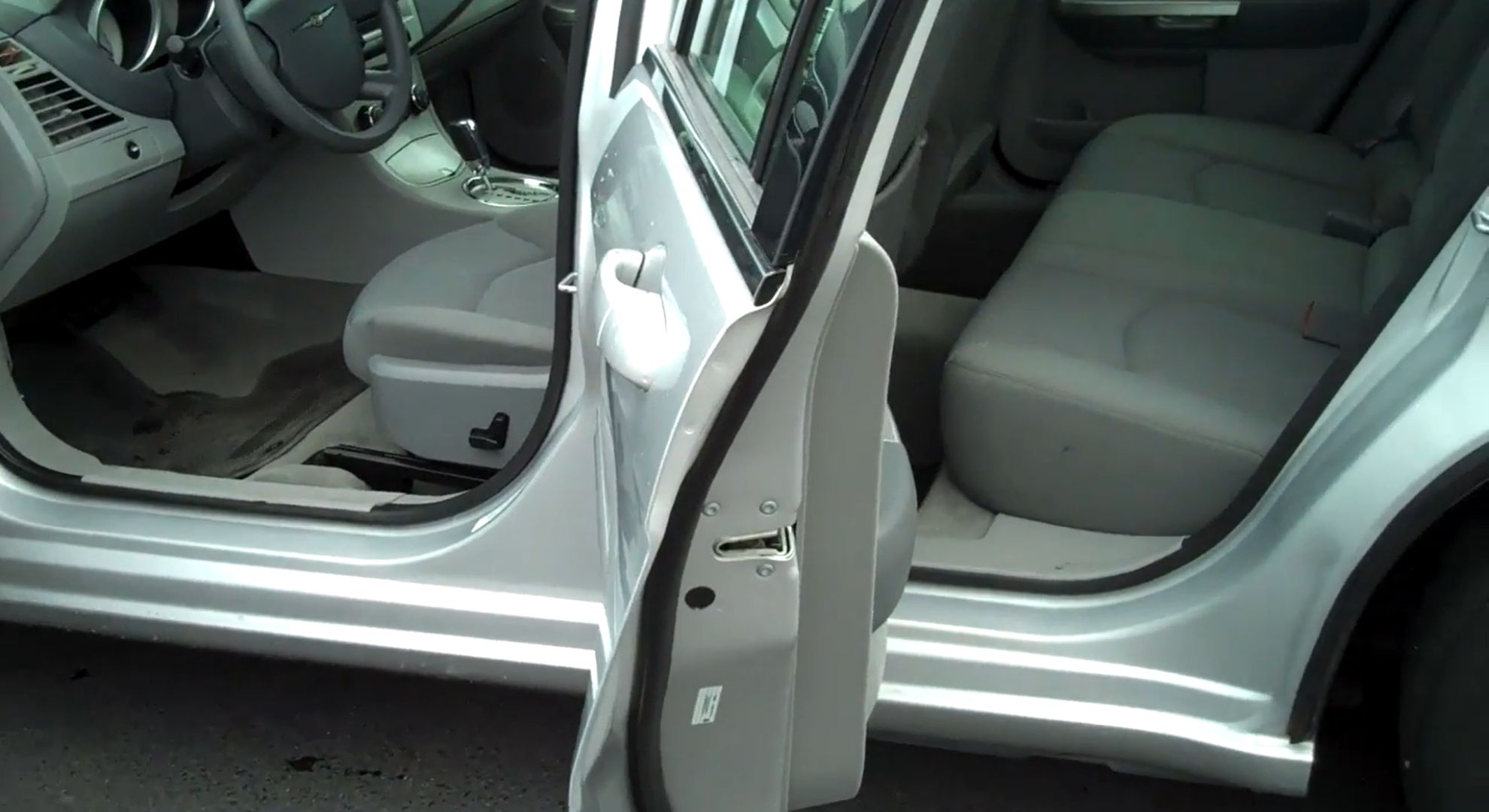 2008 Chrysler Sebring by Blade Chevrolet
2008 Chrysler Sebring by Blade Chevrolet
4. Hummer H2 (2002–2009)
Have you ever stepped into a toy store disguised as an SUV? Well, that’s the H2. This vehicle tried too hard to be rugged with the bulky knobs, cheap-looking carbon trim, and a dashboard thick as a bunker wall. This was military-inspired excess with no grace, just grit.
5. Chevrolet Malibu (2004–2007)
Despite its mainstream aim, the Malibu’s cabin felt two decades behind. It first had mismatched textures that clashed beneath bland lighting. Second, the instrument clusters lacked definition, and the materials aged like milk. You’d expect more charisma in a lunch tray than in this dashboard.
 Every Car Is A Great Car: 2004 Chevrolet Malibu - Its lack of value IS its value. by Janky AF
Every Car Is A Great Car: 2004 Chevrolet Malibu - Its lack of value IS its value. by Janky AF
6. Nissan Juke (2011–2017)
A polarizing motocross-themed center console dominated the interior, borrowing from fuel tanks and scooters. The quirk overflow was another contested detail that some found bold, while many saw it as awkward cosplay. Your dashboard should guide you not confuse with its unsightly ways.
7. Toyota Prius (2004–2009)
The central placement of gauges defied instinct, and it left drivers glancing sideways rather than forward. Soft-touch panels were rare, while functionality trumped aesthetic appeal. It felt like a digital prototype left half-finished. Overall, it was efficient, but it lacked soul or warmth.
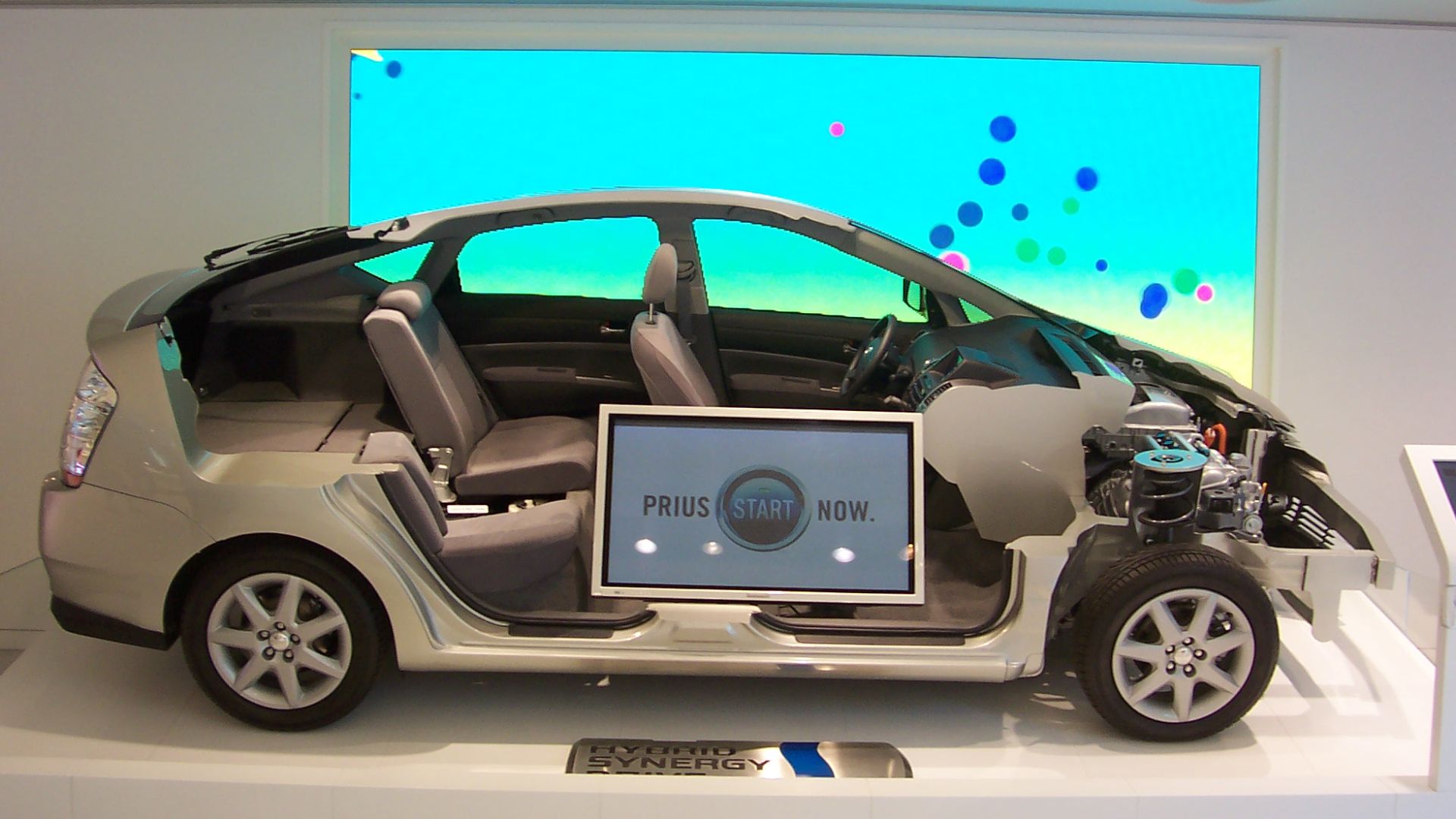 Michael Plasmeier (theplaz.com) User:Michael180 on Wikimedia
Michael Plasmeier (theplaz.com) User:Michael180 on Wikimedia
8. Subaru Tribeca (2006–2007)
Designers called it “futuristic,” but drivers called it “alien.” The swooping center stack mimicked bird wings mid-flight, spreading confusion instead of elegance. Here, control placement lacked logic. You’d fumble for knobs, wondering if the dashboard was mocking you on purpose.
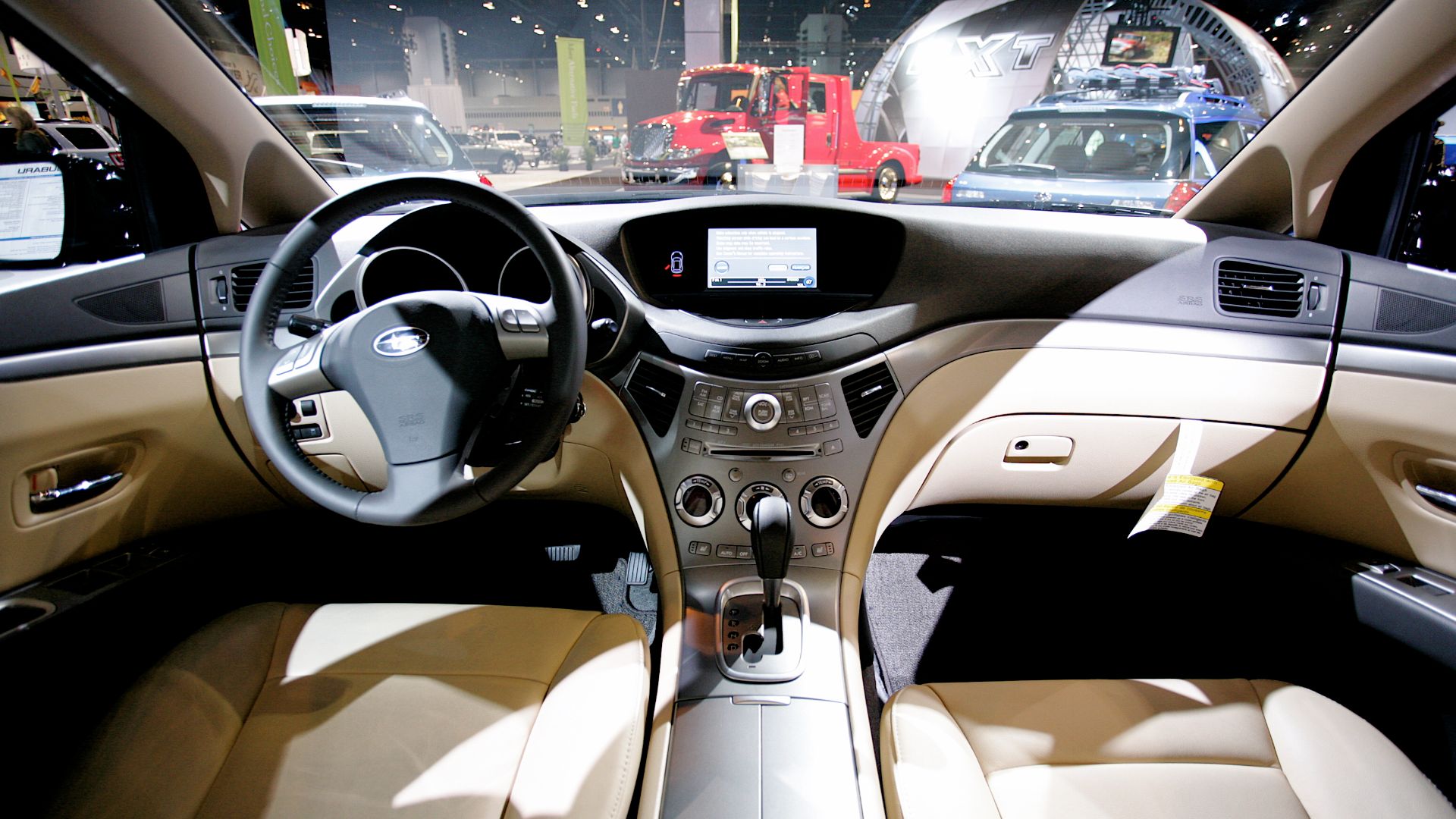 Albert Yau from Chicago on Wikimedia
Albert Yau from Chicago on Wikimedia
9. Jeep Compass (2007–2010)
Step into this Compass, and you’ll feel lost immediately. It had hard plastics surrounding you like dollar-store armor. Then, the controls creaked under finger pressure while the air vents rattled like they’d rather escape the dash. The cabin whispered, “We didn’t try.”
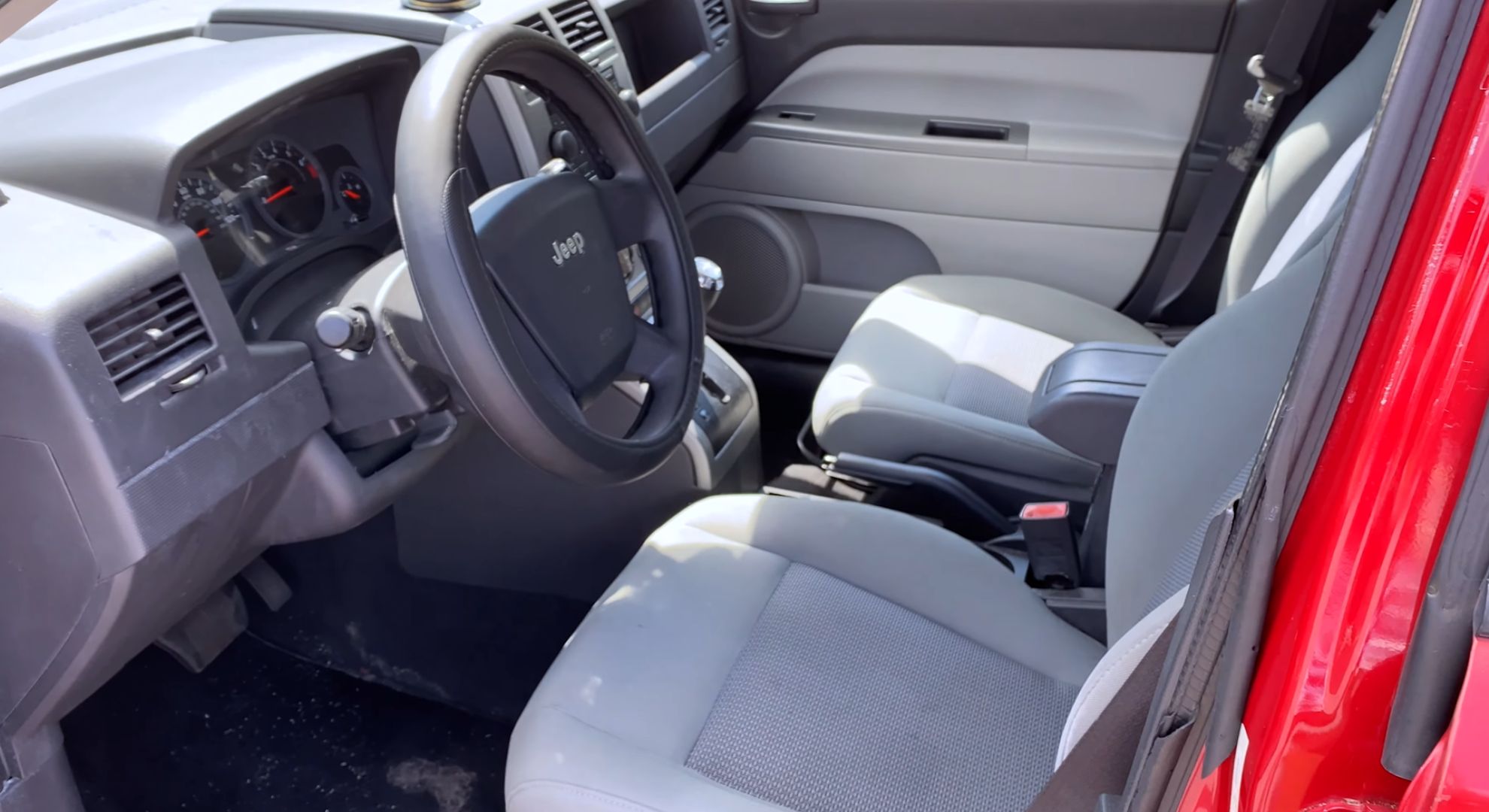 Car Tour (2007 Jeep Compass) | Jasmine Valentine by Jasmine Valentine
Car Tour (2007 Jeep Compass) | Jasmine Valentine by Jasmine Valentine
10. Lincoln MKT (2010–2019)
If someone stitched together an Art Deco movie set and a copier machine, you’d get the MKT’s interior. The lines fought one another, symmetry was absent, and the infotainment system felt like a relic from the early dial-up era. This car struggled to feel luxurious.
Some cabins just get it right—the textures, layout, buttons, and light hitting the dash. These aren’t just interiors; they’re experiences. Ready to see the best? Let’s take a look.
1. Mercedes-Benz S-Class (W140, 1991–1998)
A sanctuary crafted with surgeon-like precision, the W140 whispered luxury through its bank vault doors and rich Zebrano wood trim. All dials clicked with intention, and the surface felt premium. You didn’t drive this car; you presided over it from a throne.
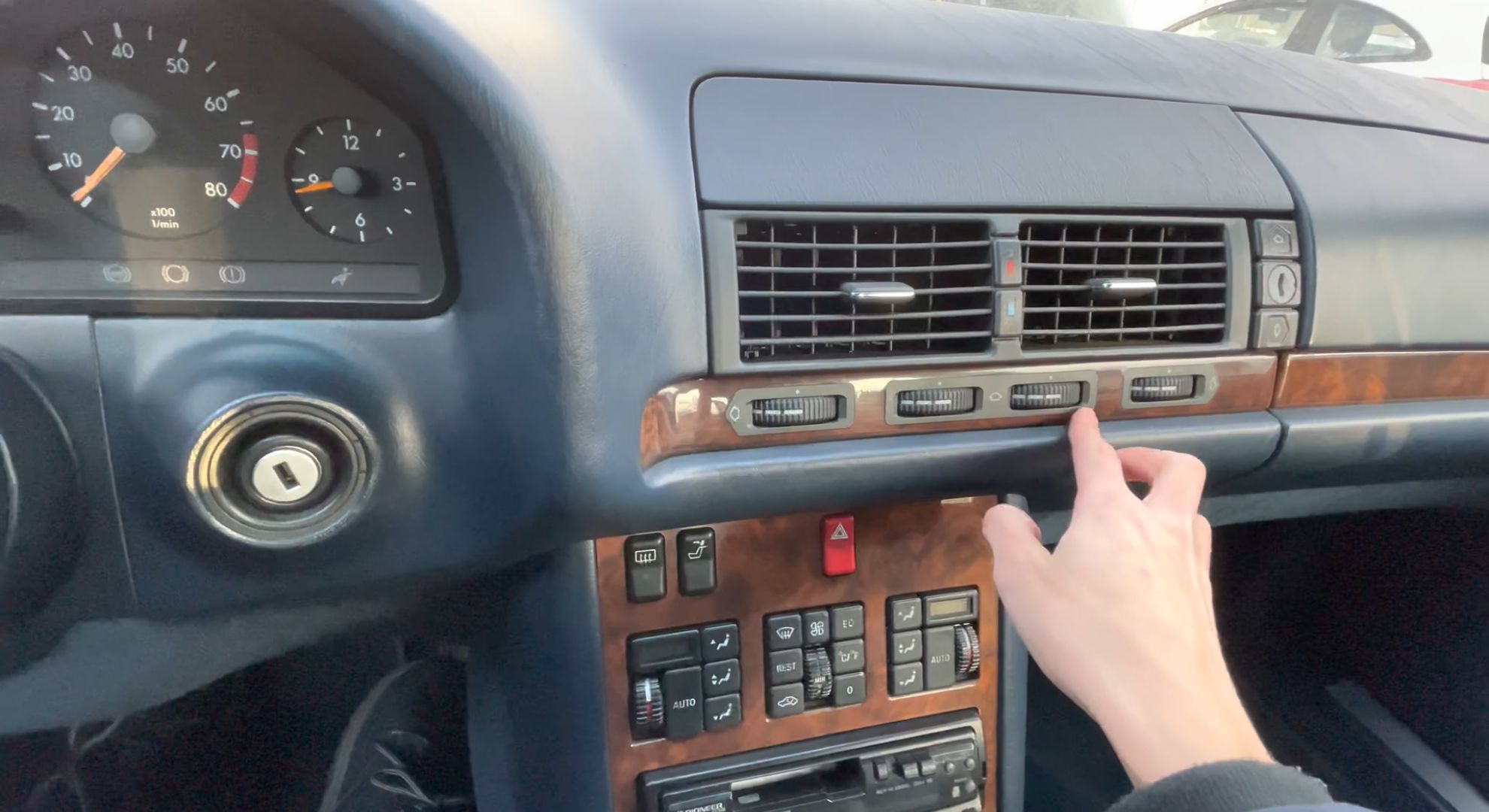 1991 Mercedes S class W140 interior quality check by DREAM CAR
1991 Mercedes S class W140 interior quality check by DREAM CAR
2. Audi A8 (D4, 2010–2017)
The MMI interface was definitely ahead of its time, with aluminum accents complementing supple leather and ambient lighting softening drives. Inside this car, you could live and forget the outside world ever existed. It felt and looked like progress.
3. Lexus LS400 (1990–1994)
The LS400’s interior exemplified quiet confidence. Analog clocks, walnut panels, buttery-soft leather, and whisper-quiet climate control brought business-class comfort to each mile. Noise isolation was also unrivaled, and everything operated in hushed perfection.
4. BMW 7 Series (E38, 1994–2001)
The E38 struck the ideal balance between an analog feel and executive presence. Each element pointed toward the driver with tight stitching, ergonomic design, and understated elegance. Even when it stood parked, the cabin looked like it wanted to go fast.
5. Ferrari 458 Italia (2009–2015)
Inside the 458, form met fire. Alcantara wrapped everything important, and the paddle shifters loomed behind a purposeful wheel. The absence of a center screen was also helpful because it forced you to focus. This cockpit was a launch pad for adrenaline.
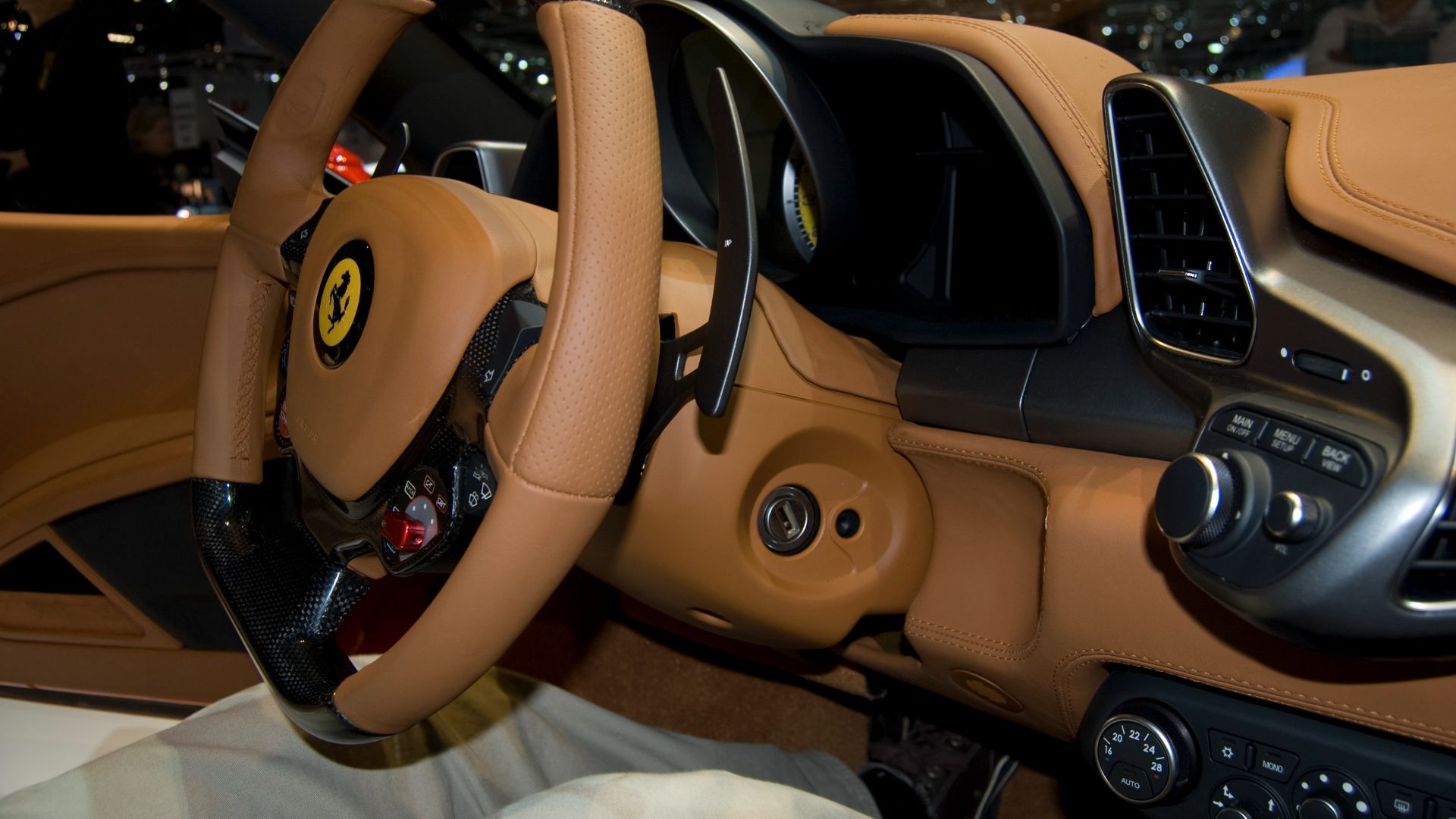 David Villarreal Fernández on Wikimedia
David Villarreal Fernández on Wikimedia
6. Range Rover (L322, 2002–2012)
Step into an L322, and it welcomes you like a well-mannered butler, poised and composed. Supple leather and timber-trimmed elegance blended, and the cockpit smelled of leather-bound books. When riding in this vehicle, you feel ready for both war and wine.
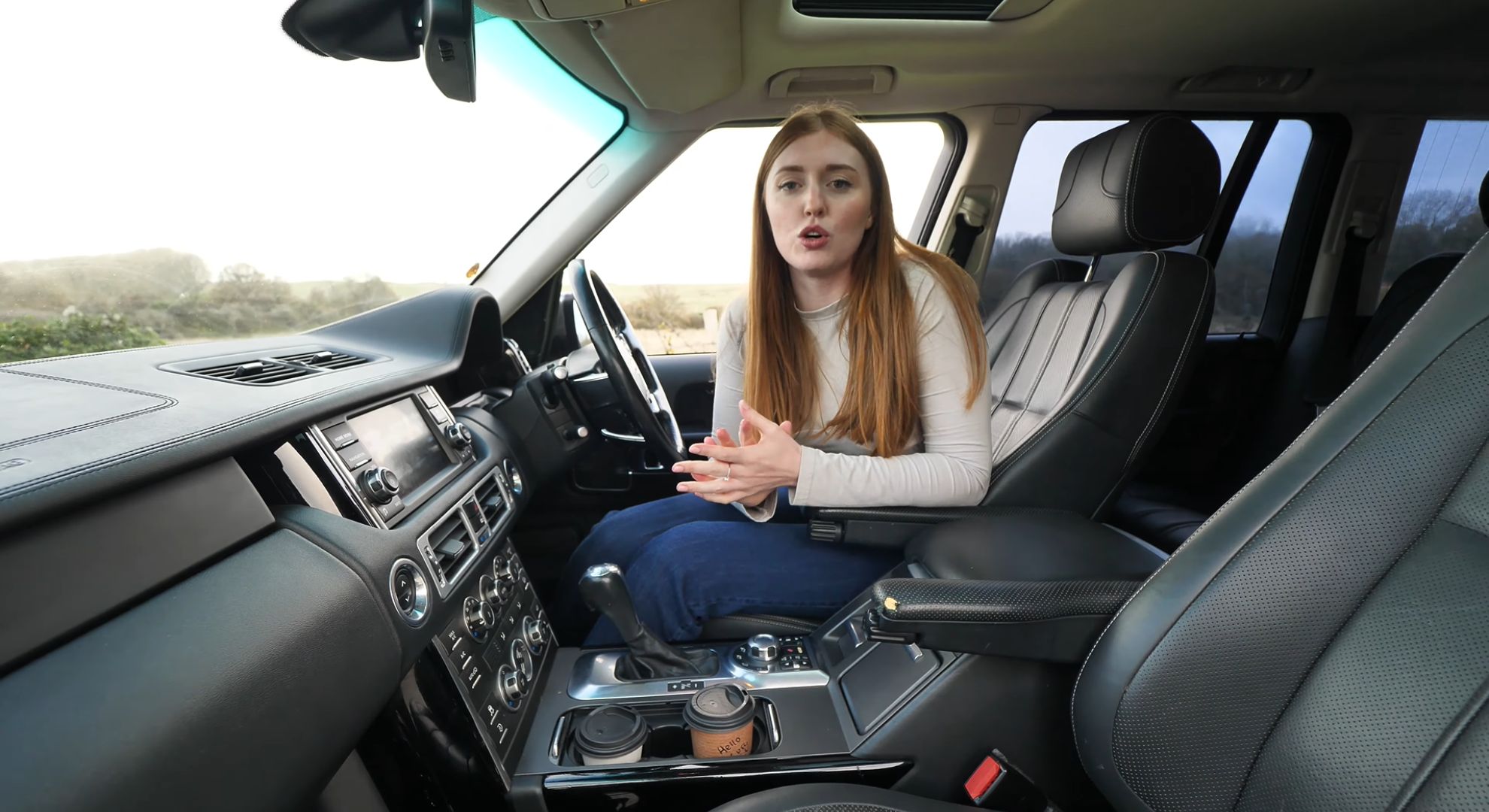 6 Hidden Features on Range Rover L322 That You Didn’t Know Existed! by Lucy On Cars
6 Hidden Features on Range Rover L322 That You Didn’t Know Existed! by Lucy On Cars
7. Tesla Model S (2012–2020)
The 17-inch vertical touchscreen was revolutionary: clean and minimalist. Critics scoffed at this, but those behind the wheel adored the simplicity. Fewer distractions and more space to breathe. This was the future knocking early.
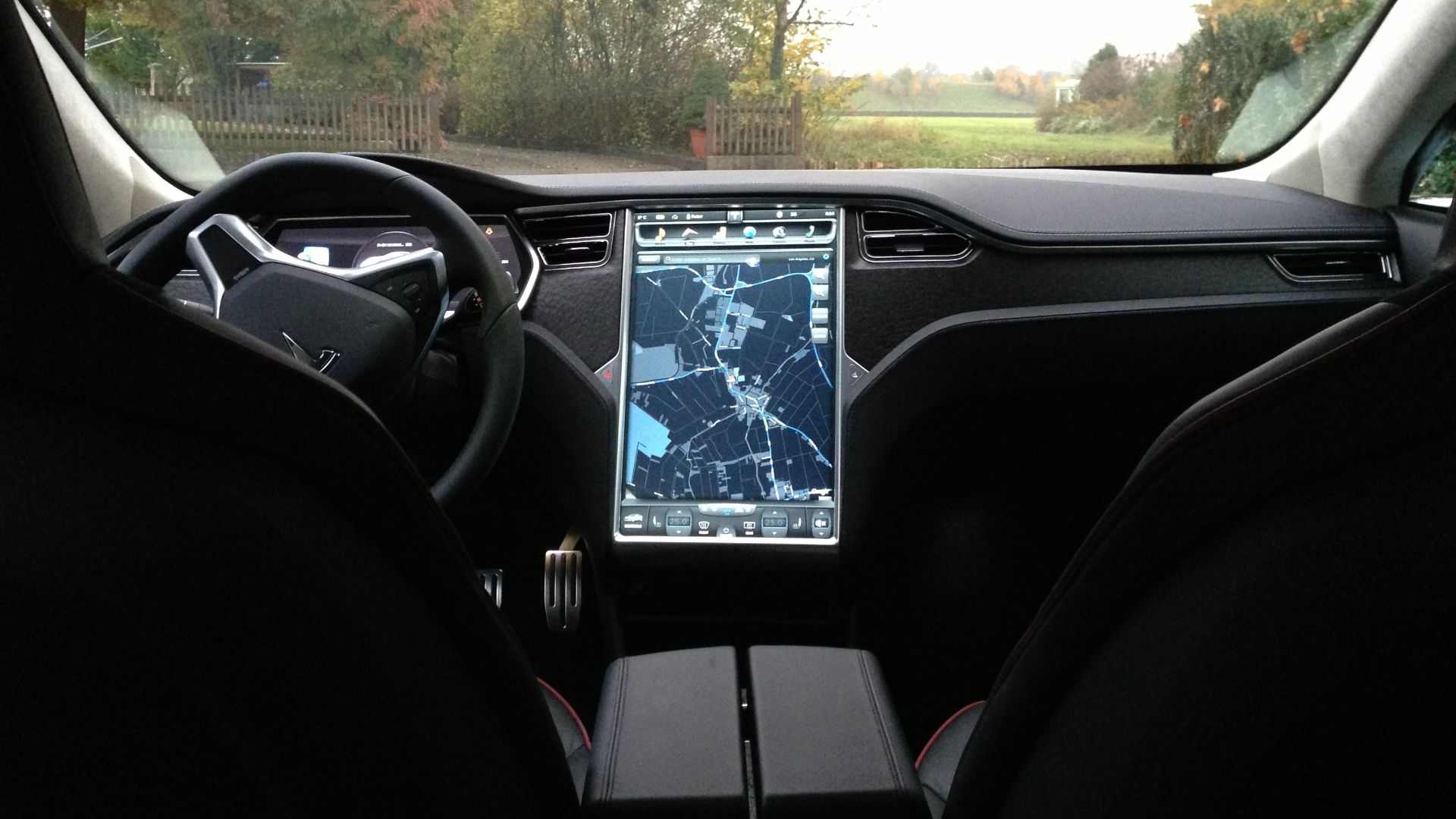 Maurizio Pesce from Milan, Italia on Wikimedia
Maurizio Pesce from Milan, Italia on Wikimedia
8. Jaguar XJ (X350, 2003–2009)
The XJ had a way of making you feel instantly at home, wrapped in British sophistication. Every detail, from the sleek chrome to the carefully crafted interior, felt like it was put there with purpose. It was a gentleman’s club on wheels—elegant and built for those who appreciate the finer things in life.
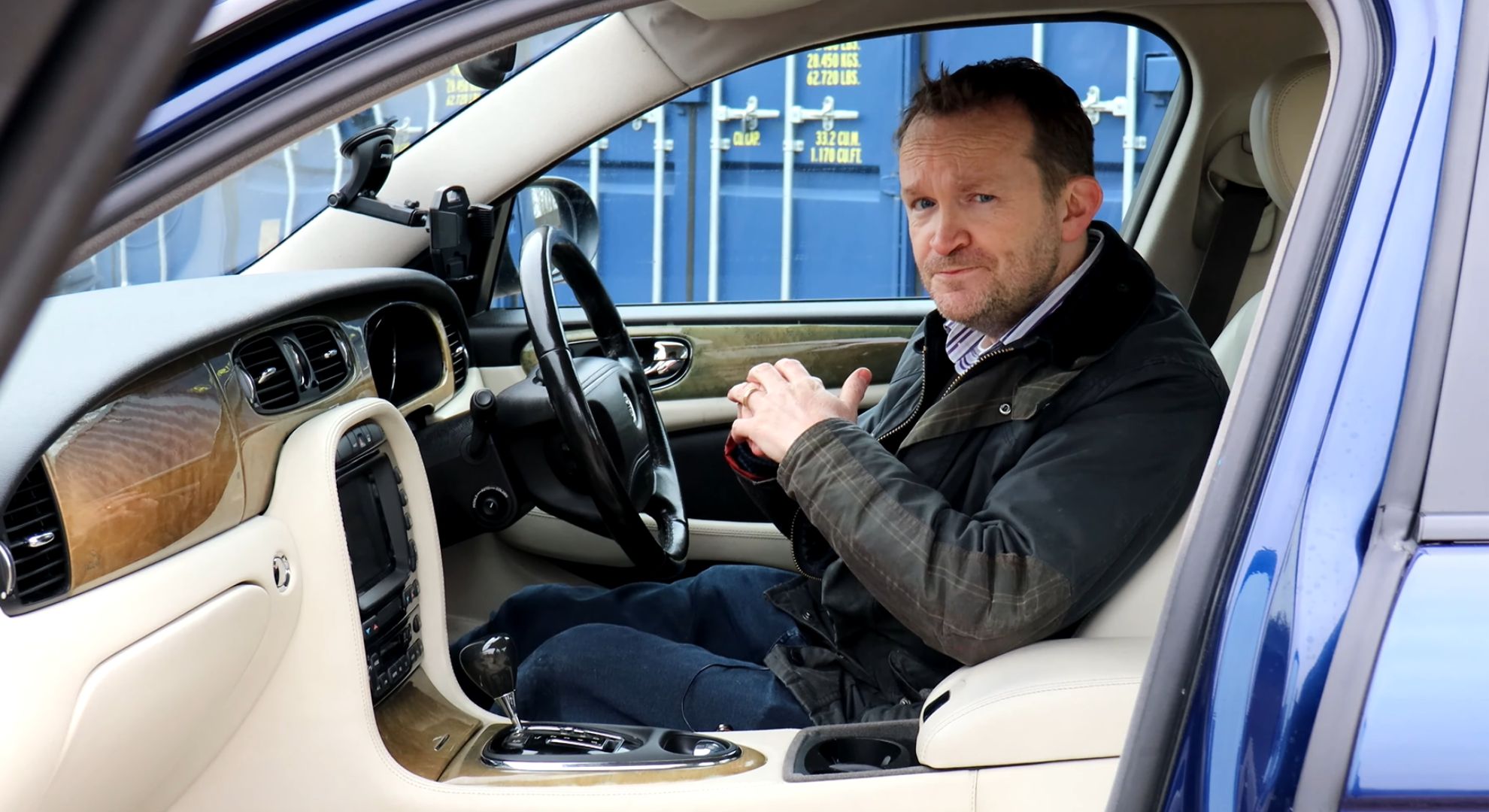 Jaguar X350 XJ Buying Guide - Cheap Luxury or MASSIVE Money Pit? by Classics World
Jaguar X350 XJ Buying Guide - Cheap Luxury or MASSIVE Money Pit? by Classics World
9. Porsche 911 (991, 2011–2019)
Sport and elegance coexisted in harmony here with the sloped dash and five-gauge layout that said, “Let’s go fast, but stay composed.” Its leather-wrapped surfaces met brushed aluminum, and the controls stood within reach.
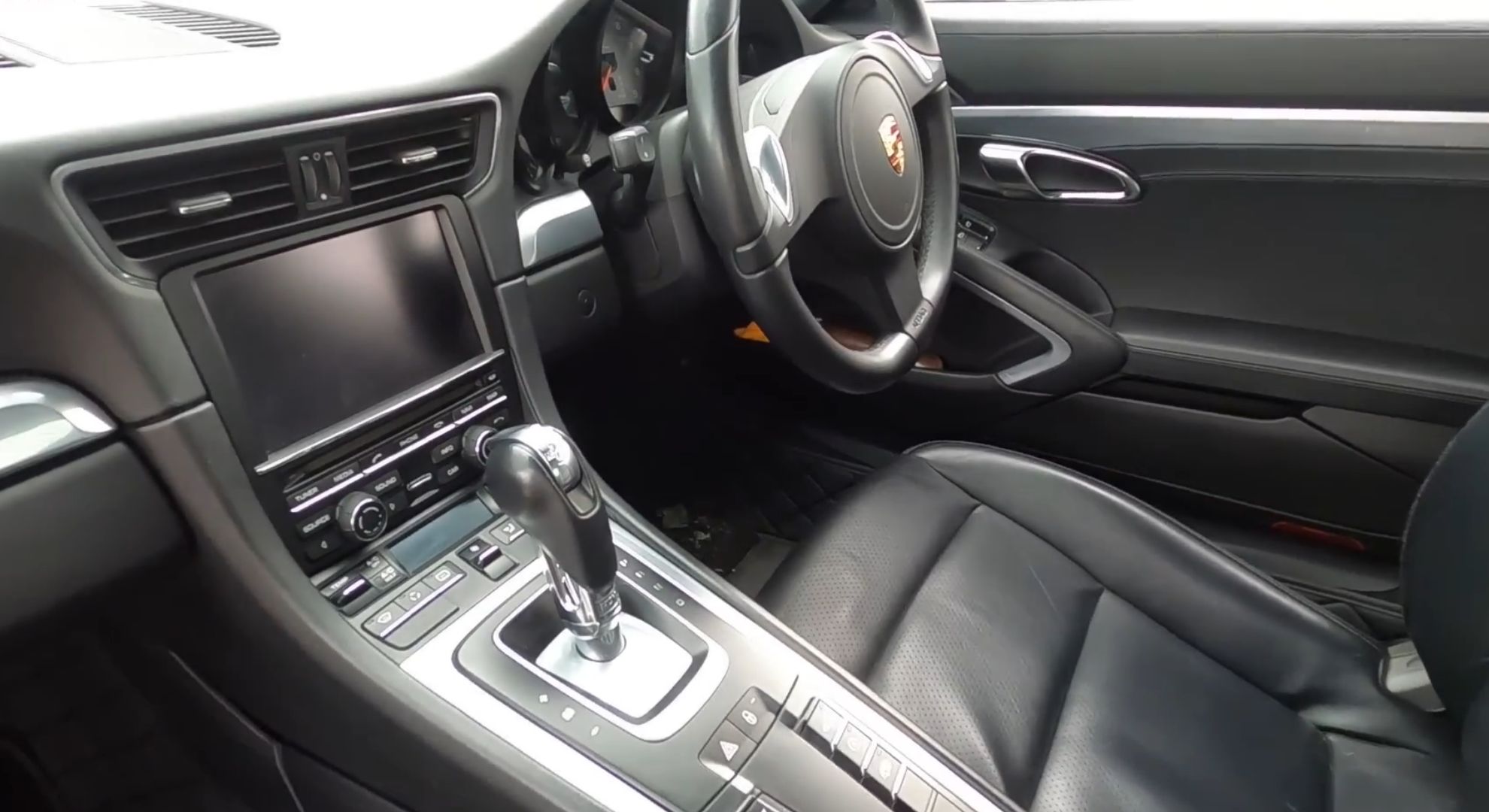 Porsche 911 991 - What to Expect After 10 Years & 50,000 Miles - by The Porsche House
Porsche 911 991 - What to Expect After 10 Years & 50,000 Miles - by The Porsche House
10. Volvo XC90 (2015–Present)
Clean lines, open-pore wood, and Orrefors crystal gear selector deliver a spa-like calm. All the devices you touch feel deliberate and meaningful. Another win is that the XC90 was the first vehicle to introduce Volvo’s "Run-off Road Protection," designed to reduce spinal injuries in rough terrain or accidental departures.


